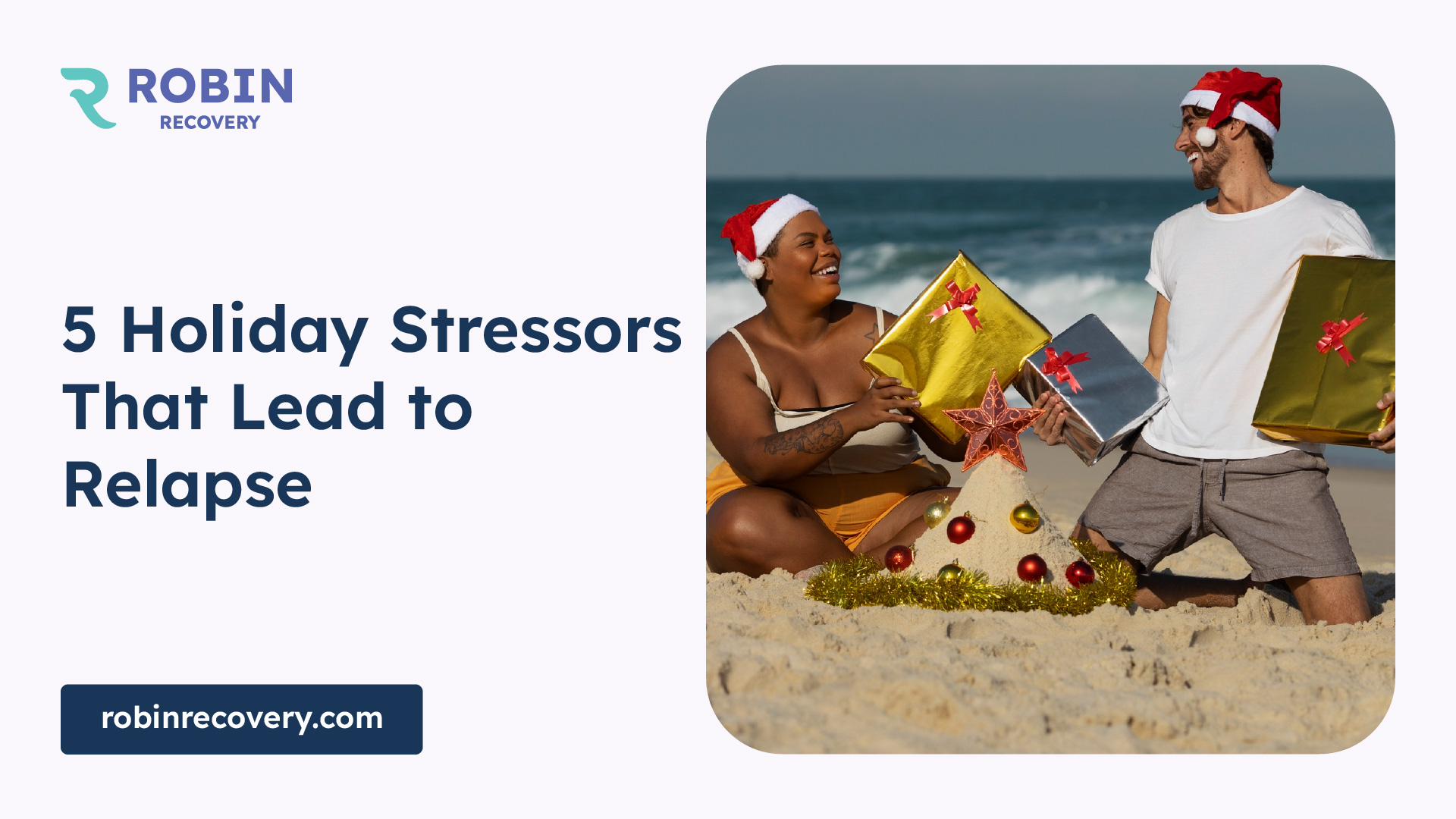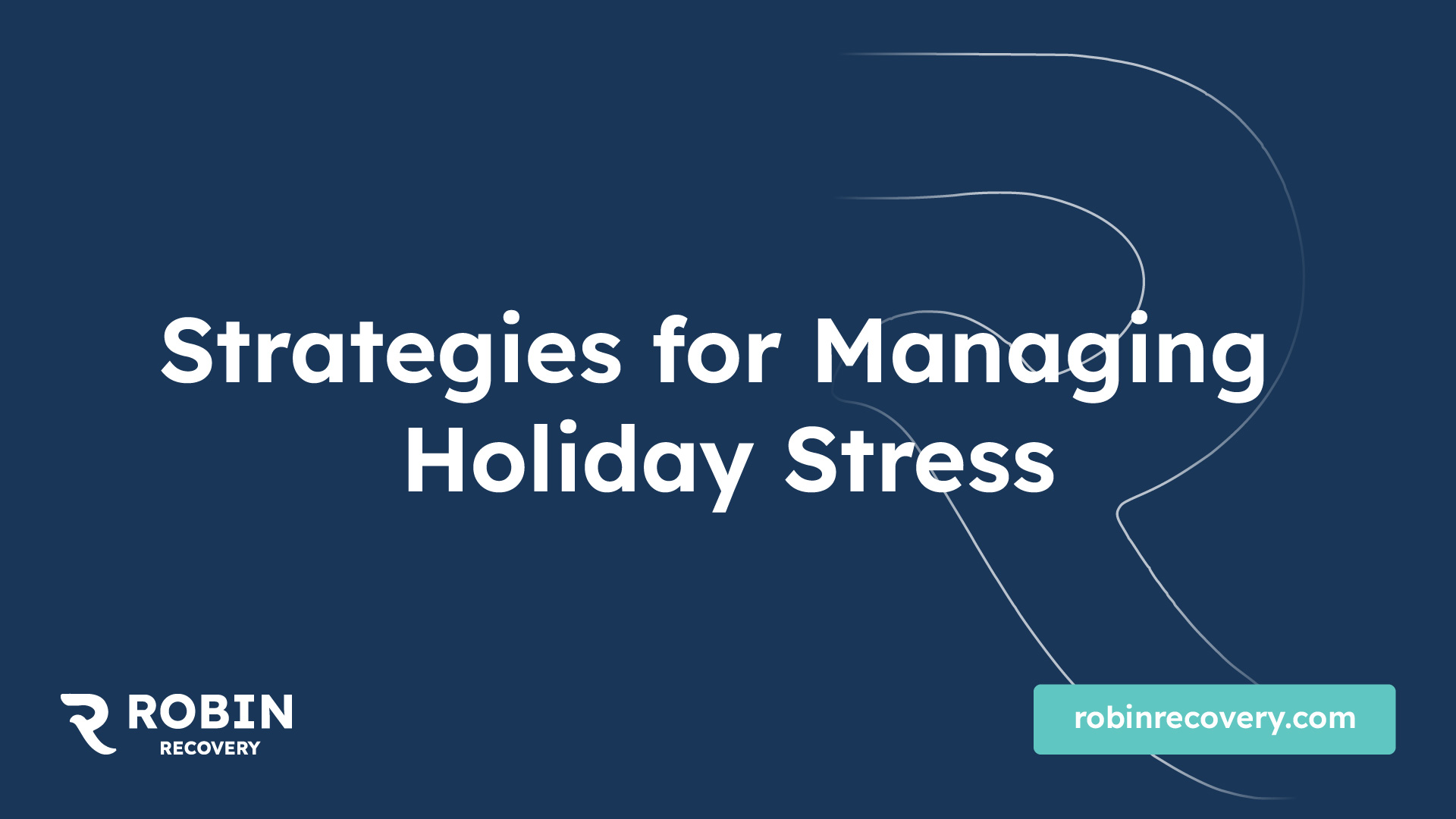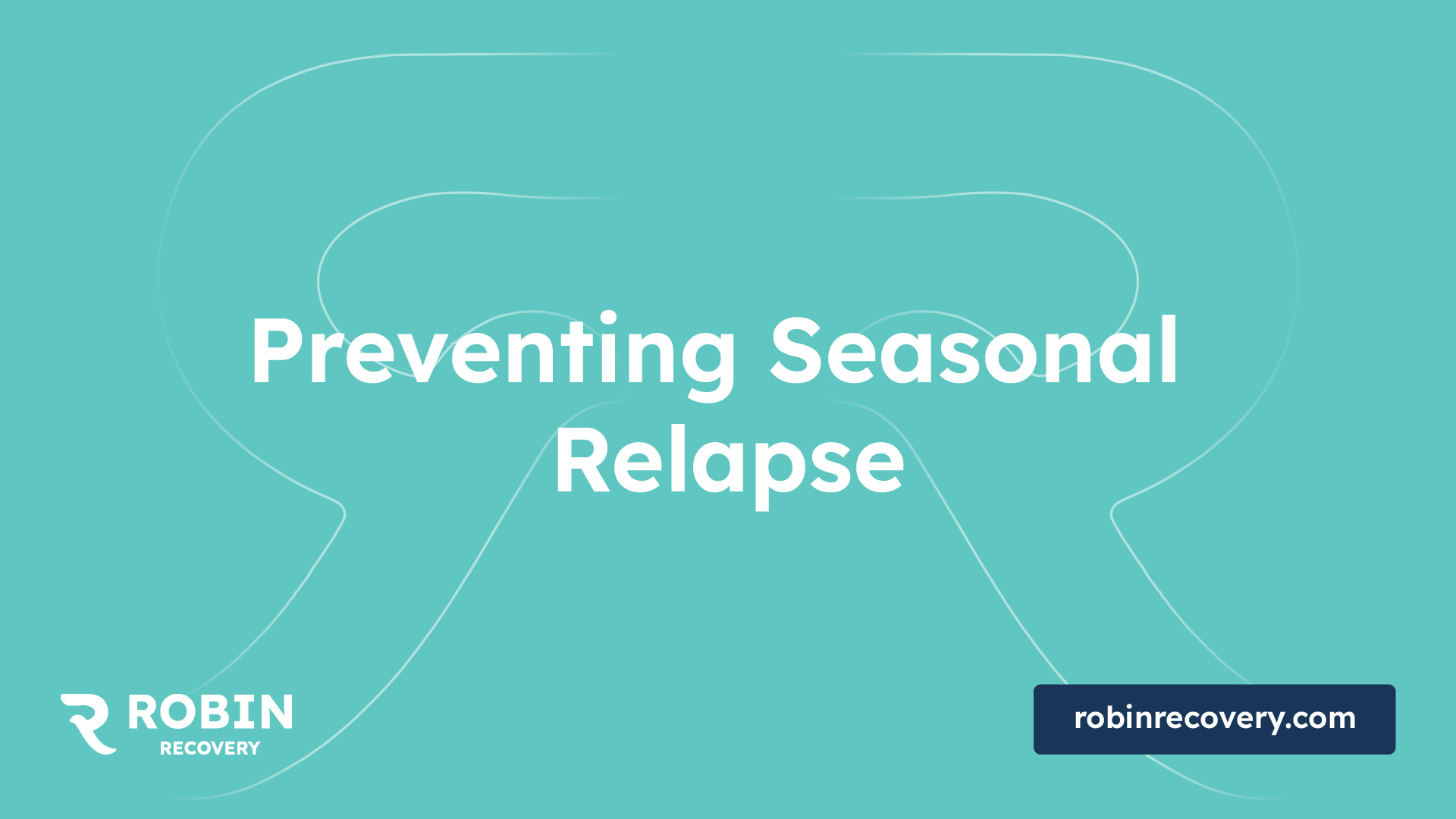5 Holiday Stressors That Lead to Relapse


Holiday Stress and Addiction Relapse
The holiday season can bring about a range of emotions and stressors that can potentially trigger a relapse in individuals recovering from addiction. Understanding the impact of holiday stress and being aware of common anxiety disorders can help individuals in recovery navigate this challenging time and maintain their sobriety.
Impact of Holiday Stress
According to the American Psychological Association, 38 percent of people reported an increase in their stress levels during the holidays [1]. The combination of various factors, such as financial strain, family dynamics, and societal expectations, can contribute to heightened stress levels during this time. For individuals in recovery, this stress can potentially trigger a relapse as the brain may crave substances previously relied upon to cope [2].
Common Anxiety Disorders
The holiday season can also exacerbate symptoms of various anxiety disorders. Some common anxiety disorders that can be triggered during the holidays include:
- Generalized Anxiety Disorder (GAD): Individuals with GAD may experience excessive worry and anxiety about everyday situations, which can intensify during the holiday season.
- Social Anxiety Disorder: Holiday gatherings and social events can be particularly challenging for individuals with social anxiety disorder, leading to increased feelings of fear and discomfort in social situations.
- Post-Traumatic Stress Disorder (PTSD): Memories of past traumatic events may surface during the holidays, triggering symptoms of PTSD such as flashbacks, nightmares, and heightened anxiety.
- Panic Disorder: Individuals with panic disorder may experience panic attacks characterized by intense fear and physical symptoms. The stress and pressure of the holidays can potentially trigger these panic attacks.
- Specific Phobias: Holiday-related triggers, such as specific decorations or crowded shopping centers, can exacerbate anxiety symptoms in individuals with specific phobias.
Recognizing the impact of holiday stress and understanding common anxiety disorders can help individuals in recovery prepare and implement effective strategies to manage these challenges. By incorporating stress management techniques and seeking support, individuals can navigate the holiday season with resilience and reduce the risk of relapse. In the following sections, we will explore strategies for managing holiday stress and common stressors that individuals in recovery may encounter.
Holiday Stressors in Recovery
The holiday season can be a challenging time for individuals in recovery from addiction. It's important to recognize and understand the specific stressors that can lead to relapse during this time. Two common holiday stressors that individuals in recovery may face are memories of past stressful situations and triggers and cravings.
Memories of Past Stressful Situations
For individuals in recovery, the holiday season can bring back memories of past stressful situations. These memories may include arguments with family members, conflicts, or stress related to hosting gatherings [1]. The nostalgia of past holidays spent using substances can intensify during this time, making it important to acknowledge and address these memories.
It's essential to remember that everyone's journey is unique, and past experiences should not define the present or dictate future outcomes. By focusing on the present and implementing healthy coping mechanisms, individuals in recovery can navigate these memories and prevent them from triggering a relapse.
Triggers and Cravings
Parties and gatherings during the holiday season can serve as triggers for individuals in recovery, as the presence of drugs and alcohol can be stressful and associated with past substance use [3]. Returning to familiar environments, interacting with old friends, and being exposed to substances can reignite cravings and old habits. Research has shown that stress-related drug cravings can predict subsequent relapse in individuals who are abstinent [3].
To manage triggers and cravings, it's crucial for individuals in recovery to develop effective coping strategies and implement a relapse prevention plan. This may include avoiding situations or environments where substances are present, seeking support from a sponsor or support group, and engaging in alternative activities that promote sobriety and well-being.
By acknowledging and understanding the impact of memories and triggers during the holiday season, individuals in recovery can take proactive steps to mitigate stress and prevent relapse. It's important to reach out for support, whether from loved ones, therapists, or support groups, to navigate these stressors successfully. Remember, relapse does not indicate failure, but rather an opportunity for growth and learning.

Strategies for Managing Holiday Stress
During the holiday season, managing stress is essential for individuals in addiction recovery. By implementing effective strategies, individuals can navigate potential triggers and reduce the risk of relapse. Here are three key strategies for managing holiday stress:
Recognizing Signs of Stress
Recognizing the signs of stress early on is crucial for individuals in addiction recovery. Stress can manifest both mentally and physically, and being aware of these signs can help individuals take proactive steps to manage their stress levels.
Physical signs of stress may include headaches, muscle tension, fatigue, and changes in appetite. On the other hand, mental symptoms can include irritability, difficulty concentrating, and feeling overwhelmed. By paying attention to these signs, individuals can identify when they are experiencing stress and take appropriate action to address it.
Reducing Exposure to Triggers
One of the most important steps in managing holiday stress in addiction recovery is reducing exposure to triggers. Triggers are experiences that make individuals think about and desire to use substances. By minimizing exposure to these triggers, individuals can significantly reduce the risk of relapse.
For example, if certain social situations or events increase the temptation to use substances, it may be helpful to limit attendance or develop strategies to cope with these triggers. Creating boundaries and being selective about the events or gatherings attended can be an effective way to reduce exposure to triggers.
Creating New Traditions
Creating new and meaningful traditions can help make the holidays more enjoyable for individuals in addiction recovery. These new traditions should be safe, meaningful, and supportive of sobriety. By engaging in activities that promote wellness and connection, individuals can replace old, potentially harmful habits with healthier alternatives.
Consider exploring activities such as volunteering, taking part in outdoor adventures, or engaging in creative outlets like art or music. These new traditions can provide a sense of purpose, joy, and fulfillment, helping to alleviate stress and reinforce positive behaviors [5].
By implementing these strategies, individuals in addiction recovery can effectively manage holiday stress and reduce the risk of relapse. Recognizing signs of stress, reducing exposure to triggers, and creating new traditions can contribute to a more positive and fulfilling holiday experience. Remember, seeking support from loved ones, therapists, or support groups can also provide valuable assistance during this time.
Common Holiday Stressors for Recovery
During the holiday season, individuals in recovery from substance use disorders may face specific challenges that can increase their vulnerability to relapse. Understanding these common holiday stressors is essential for developing effective strategies to navigate this potentially difficult time.
Extended Family Time
One of the significant stressors for individuals in recovery during the holidays is extended family time. Family gatherings can bring up past conflicts, unresolved issues, and triggers that may remind them of past stressful situations. Being around family members who may not fully understand or support their recovery journey can add emotional strain and increase the risk of relapse.
To navigate extended family time, it's important to set boundaries and communicate openly about your needs and limitations. Having a support system in place, such as a sponsor, therapist, or trusted friend, can provide additional guidance and encouragement during these gatherings. It may also be helpful to have an exit plan in case you find yourself feeling overwhelmed or triggered.
Pressures of Perfection
The pressures of perfection that often accompany the holiday season can be particularly challenging for individuals in recovery. There is a societal expectation to create the "perfect" holiday experience, which can lead to feelings of inadequacy, stress, and self-doubt. Striving for perfection can be a trigger for relapse as individuals may turn to substances as a way to cope with the pressure or mask their feelings of not measuring up.
To combat the pressures of perfection, it's important to set realistic expectations for yourself and your holiday celebrations. Remember that perfection is not attainable, and it's okay to prioritize your well-being and recovery over trying to meet unrealistic standards. Focus on creating meaningful moments rather than striving for perfection. Embrace imperfections and allow yourself to enjoy the holiday season in a way that aligns with your values and supports your recovery.
Financial Strain
Financial stress during the holidays can impact individuals in recovery and increase their vulnerability to relapse. Crowded stores, holiday gift lists, and extra expenses can contribute to feelings of financial strain and anxiety. Research has shown that individuals with more financial stress are more likely to relapse [3].
To manage financial strain, it's important to set a realistic budget and stick to it. Prioritize spending on experiences and meaningful connections rather than extravagant gifts. Consider alternative ways to show love and appreciation, such as creating homemade gifts or volunteering your time. If you find yourself feeling overwhelmed by financial stress, reach out for support. There are resources available that can provide assistance and guidance during this time.
By recognizing and understanding these common holiday stressors for individuals in recovery, you can take proactive steps to mitigate their impact. Remember to prioritize self-care, set boundaries, and seek support from your recovery network. The holiday season can be a time of joy and connection, and with careful planning and self-awareness, you can navigate these stressors and maintain your sobriety during this time.

Preventing Seasonal Relapse
When it comes to preventing relapse during the holiday season, there are several strategies that can be effective in maintaining sobriety. Communication and budgeting, distancing from triggers, and practicing self-care are key components of a relapse prevention plan.
Communication and Budgeting
Effective communication and creating a holiday budget can be instrumental in preventing seasonal relapse. Openly discussing expectations and limitations with loved ones can help manage stress and reduce the pressure to overspend or engage in activities that may be triggering. By setting realistic boundaries and expectations, individuals in recovery can navigate the holiday season with greater ease and avoid feelings of burnout and failure.
Creating a holiday budget ensures responsible spending and reduces financial strain, which can be a trigger for relapse. By setting a realistic spending limit and prioritizing meaningful experiences over material possessions, individuals can focus on the true spirit of the season without compromising their recovery.
Distancing from Triggers
One of the crucial aspects of preventing seasonal relapse is distancing oneself from triggers that may lead to cravings. This may involve avoiding social situations or environments that are associated with substance use or negative behaviors. By identifying and consciously staying away from these triggers, individuals can protect their sobriety and maintain a sense of control over their recovery.
Managing expectations and avoiding overcommitment to multiple events is also important. By prioritizing self-care and focusing on quality, meaningful connections rather than quantity, individuals can reduce stress and prevent feelings of being overwhelmed or pulled in different directions. This can help maintain peace and serenity in recovery [6].
Practicing Self-Care
Making self-care a priority during the holiday season is crucial for individuals in recovery. This includes attending recovery meetings, maintaining spiritual practices, calling on support networks, exercising, eating healthy, getting enough sleep, staying hydrated, and ensuring ample quiet time to recharge. These self-care practices help individuals stay grounded, manage stress, and maintain emotional well-being throughout the holiday season [6].
By prioritizing self-care, individuals in recovery can better navigate the emotional and physical challenges that may arise during the holiday season. It provides a solid foundation for maintaining sobriety and helps individuals stay connected to their recovery journey.
Incorporating effective communication, budgeting, distancing from triggers, and practicing self-care are essential strategies for preventing seasonal relapse. By being proactive and implementing these strategies, individuals can enjoy a safe and sober holiday season while prioritizing their recovery journey.
Navigating Holiday Challenges
The holiday season can bring about a variety of challenges for individuals in addiction recovery. It's important to be aware of these challenges and develop strategies to navigate them successfully. Three common holiday challenges that individuals in recovery may face are family conflict, disrupted routines, and emotional turmoil.
Family Conflict
Family gatherings during the holidays can be a significant source of stress, especially if relationships have been strained or are linked to an individual's history with substance abuse. For those in recovery, being in the presence of alcohol or witnessing excessive drinking can reopen old wounds, lead to increased conflict, and trigger the urge to drink or use substances as a coping mechanism. This can jeopardize one's sobriety and increase the risk of relapse [3]. It is crucial to establish boundaries, communicate openly with family members, and seek support from a sponsor, therapist, or support group during these challenging situations.
Disrupted Routines
The holiday season often brings disrupted routines due to irregular schedules, travel, and numerous events. For individuals in recovery, the stability and structure of daily routines play a vital role in managing their sobriety. Disruptions to these routines can leave individuals feeling unmoored and more susceptible to cravings. It is essential to plan ahead and find ways to maintain a sense of structure during the holidays. This can be achieved by establishing a daily schedule, prioritizing self-care, and incorporating activities that support sobriety, such as attending support group meetings or engaging in mindfulness exercises. By proactively managing disruptions to routines, individuals can reduce the risk of relapse.
Emotional Turmoil
Emotional turmoil is another significant challenge that individuals in recovery may face during the holiday season. Feelings of shame, guilt, humiliation, anger, and depression can become more pronounced, leading to increased anxiety and triggering cravings. Many people report experiencing heightened emotional stress during this period, which can be challenging to navigate while maintaining sobriety. It is crucial to prioritize self-care and seek support during these times. This can involve engaging in stress-reducing activities, such as exercise or meditation, reaching out to a therapist or counselor, and leaning on a supportive network of friends and family. By acknowledging and addressing these emotions in a healthy way, individuals can better manage their sobriety and reduce the risk of relapse.
Navigating holiday challenges requires awareness, preparation, and support. By recognizing the potential triggers and stressors associated with family conflict, disrupted routines, and emotional turmoil, individuals in recovery can take proactive steps to protect their sobriety. Remember, reaching out for help is a sign of strength, and there are resources available to support individuals in their journey to maintain a healthy and substance-free holiday season.
References
[1]: https://footprintsbeachside.com/addiction-recovery-blog/managing-holiday-stress-in-recovery/
[2]: https://insightrecoveryasheville.com/rehab-blog/holiday-stress-and-relapse/
[3]: https://www.promises.com/addiction-blog/5-holiday-stressors-that-lead-to-relapse/
[4]: https://ranchatdovetree.com/blog/7-strategies-for-overcoming-holiday-stress-in-addiction-recovery/
[5]: https://royallifecenters.com/seasonal-relapse-why-do-people-relapse-during-the-holidays/
[6]: https://www.shatterproof.org/blog/how-celebrate-holidays-recovery
[7]: https://www.inspiremalibu.com/blog/relapse-prevention/7-tips-to-avoid-relapse-cravings-in-holidays/
